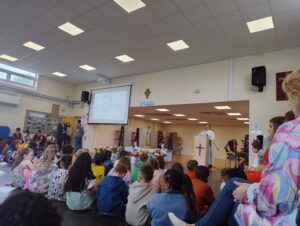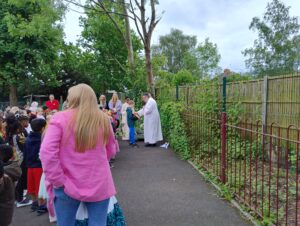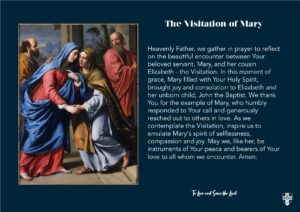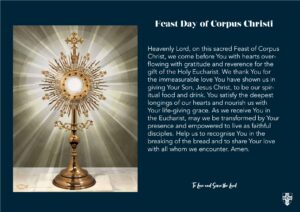World Environment Day is a global platform to raise awareness and take action on pressing environmental issues. For Catholics, this day resonates deeply with our faith, which calls us to be stewards of God’s creation. Pope Francis’ encyclical Laudato Si’ is a profound reminder of our duty to care for our common home, the Earth. This World Environment Day, we reflect on how our faith informs our environmental responsibility and inspires us to live in harmony with creation.
Catholic teaching affirms that the Earth and all its creatures are gifts from God, entrusted to our care. The Book of Genesis tells us that God created the world and saw that it was good *(Genesis 1:31). Humanity, created in the image and likeness of God, is given the responsibility to “till and keep” the garden of the world (Genesis 2:15). This mandate calls us to cultivate the Earth responsibly, ensuring that it remains a bountiful home for all living beings.
Pope Francis’ encyclical Laudato Si’, subtitled “On Care for Our Common Home”, is a cornerstone of modern Catholic teaching on the environment. In it, the Pope emphasises the interconnectedness of all creation and the urgent need to address environmental degradation and climate change. He writes, “We have forgotten that we ourselves are dust of the earth; our bodies are made up of her elements, we breathe her air and we receive life and refreshment from her waters” (Laudato Si’, 2).
The encyclical calls for an ecological conversion, a transformation of hearts and minds to recognise the sacredness of creation and our role in protecting it. Pope Francis urges us to adopt a lifestyle of simplicity and sustainability, reduce our consumption, and advocate for policies that promote environmental justice.
As Catholics, we can take concrete steps to care for the environment, inspired by our faith and the teachings of the Church. Here are some practical actions we can undertake:
- Reduce, Reuse, Recycle: Make a conscious effort to reduce waste, reuse items and recycle whenever possible. This helps to minimise our ecological footprint and conserve resources.
- Conserve Energy: Use energy-efficient appliances, switch to renewable energy sources, and be mindful of our energy consumption. Simple actions like turning off lights and unplugging devices can make a significant difference.
- Support Sustainable Practices: Choose products and services that are environmentally friendly and ethically produced. Support businesses that prioritise sustainability and fair labour practices.
- Plant Trees and Preserve Green Spaces: Participate in tree-planting initiatives and support efforts to protect forests and natural habitats. Trees play a crucial role in absorbing carbon dioxide and providing oxygen.
- Advocate for Environmental Policies: Get involved in advocacy efforts to promote policies that address climate change, protect natural resources, and support sustainable development. Join or support organisations that work towards environmental justice.
- Educate and Inspire: Share the message of environmental stewardship with others. Educate your family, friends and community about the importance of caring creation and the practical steps they can take.
World Environment Day is a powerful reminder of our responsibility to care for the Earth. As Catholics, we draw inspiration from our faith and the teachings of the Church to live in harmony with creation. By taking concrete steps to protect the environment, advocating for justice and fostering a deeper appreciation for the natural world, we honour God and fulfill our role as stewards of His creation.
Let us commit ourselves to caring for our common home, ensuring that future generations can enjoy the beauty and bounty of the Earth. In the spirit of Laudato Si’, may we embrace an ecological conversion, living out our faith through our love and care for all of God’s creation.













